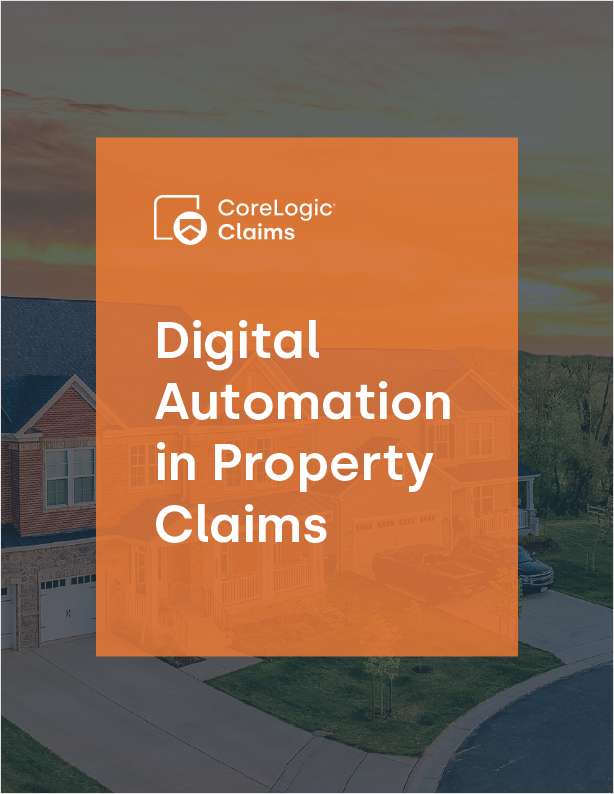Farm Bill Sets Stage for Hemp Revolution
Centuries after American colonists were required by law to grow hemp, and decades after it was then outlawed by Congress, one of the nation's oldest…
January 31, 2019 at 12:15 PM
6 minute read
The original version of this story was published on National Law Journal
 Photo: Shutterstock
Photo: Shutterstock
Centuries after American colonists were required by law to grow hemp, and decades after it was then outlawed by Congress, one of the nation's oldest and most versatile crops is poised for a resurgence. The 2018 Farm Bill, formally titled the Agriculture Improvement Act of 2018, codifies a distinction between hemp and marijuana and removes hemp from the ambit of the Controlled Substances Act.
Happening in tandem with cannabis legalization efforts happening in Connecticut, New York and other states, the designation stand to spur yet another “growing” revolution.
A brief vocabulary lesson may be a helpful starting point to understand the impact of the 2018 Farm Bill. Marijuana and hemp are different strains of the Cannabis sativa L plant. The 2018 Farm Bill defines hemp as any part of the Cannabis sativa L plant. This includes all derivatives and extracts such as cannabidiol, provided that the plant contains less than 0.3 percent tetrahydrocannabinol, and generally allows its commercial production, distribution and sale for the first time by specifically excluding hemp from the definition of marijuana and effectively descheduling hemp under the Controlled Substances Act. Any Cannabis sativa L plant or derivative from such a plant with a higher THC level is considered marijuana, which remains a Schedule I substance—the most stringently regulated category of narcotics—under the Controlled Substances Act. Because THC is the psychoactive ingredient in marijuana that produces the feeling of being “high,” a critical difference between marijuana and hemp is that hemp will not produce a “high.” Millennia of experience, however, shows hemp's impressive versatility. The crop is used to make clothes, food and building materials. And the modern economy shows a tremendous potential market for hemp-derived CBD health and wellness products.
Here are five things to watch as commercial hemp re-enters the mainstream:
1. Increased “smart” money and research. Because hemp has been a Schedule I substance along with marijuana for decades, many sophisticated sources of funding have abstained from financing the industry. This placed hemp at a competitive disadvantage to other commodities and prevented hemp from reaching its full potential. Now that hemp can be manufactured and sold without substantial legal risks, look for the money to flow toward this underserved sector. Publicly traded companies, private equity firms, venture capitalists and other investment groups will all take significant stakes in both the manufacturing and selling of hemp and hemp-derived products. In addition to traditional commercial development efforts, much of this cash is likely to be spent to hire top researchers to develop proprietary strands of hemp to meet a range of product applications and to take steps to protect the resulting intellectual property.
2. Explosion of hemp and hemp-derived products. Fueled in large part by this injection of financing from sophisticated investors, there is likely to be an explosion in the ways that hemp is used. Hemp already has hundreds—if not thousands—of known uses, and that number should grow substantially once the industry is exposed to the market forces that come with smart money and increased research. The biggest winner may be the hemp-derived CBD business. Hemp-derived CBD is a compound believed to have significant therapeutic benefits without an appreciable psychoactive component. The Washington Post has reported that “dozens of studies have found evidence that [CBD] can treat epilepsy as well as a range of other illnesses, including anxiety, schizophrenia, heart disease, and cancer.” One industry analysis predicts that the hemp-CBD market alone could hit $22 billion by 2022. The health and wellness sector should see particular hemp-related activity and growth in the coming years.
3. Increased ancillary services provided to hemp-related businesses. Because hemp has been included within the definition of marijuana under federal law for decades, most banks, law firms and other service providers have avoided providing services to hemp businesses to avoid the risk of charges of money laundering or conspiring to violate state and federal drug laws. The absence of such service providers has fostered a great deal of uncertainty in an area where certainty and clarity have been sorely needed. With hemp's new legal status, look for professional service providers to enter the market in 2019 and beyond. Of course, entities looking to provide services to hemp-related businesses should take adequate precautions to ensure those businesses are only producing federally legal hemp.
4. Consolidation and integration. An interesting phenomenon in “legal” marijuana states has been the rapid consolidation and integration of marijuana growers, processors and dispensaries. Some states have mandated vertical integration (e.g, the growers are the sellers) through regulation. And a number of large cannabis companies have acquired grow operations or multi-unit dispensaries rather than establish a cannabis presence in a state from scratch. The hemp industry is likely to follow a similar path, both through government regulation and because larger companies are likely to seek to obtain sufficient quantities of hemp through consolidation and vertical integration. Accordingly, attorneys and investors should anticipate significant merger and acquisition activity in the coming years.
5. Federal regulations and state regimes. The 2018 Farm Bill does not create an entirely unregulated playing field for hemp. Over the coming months, the U.S. Department of Agriculture and Food and Drug Administration will issue regulations implementing the 2018 Farm Bill. State governments will also unveil plans governing the testing, labeling and marketing of hemp-related products, as well as the licensing and monitoring of hemp-related businesses.
The 2018 Farm Bill represents an exciting development for an industry that has been prohibited from approaching its full potential for more than 80 years. Individuals and entities looking to enter the hemp industry should applaud this development. They should also educate themselves about the evolving legal rules governing the hemp industry in the United States, particularly as the nation struggles to develop a consistent policy regarding hemp's sister plant.
Whitt Steineker and Jay Wright are partners in the Birmingham office of Bradley Arant Boult Cummings.
This content has been archived. It is available through our partners, LexisNexis® and Bloomberg Law.
To view this content, please continue to their sites.
Not a Lexis Subscriber?
Subscribe Now
Not a Bloomberg Law Subscriber?
Subscribe Now
NOT FOR REPRINT
© 2025 ALM Global, LLC, All Rights Reserved. Request academic re-use from www.copyright.com. All other uses, submit a request to [email protected]. For more information visit Asset & Logo Licensing.
You Might Like
View All
Coerced Confessions and the Burden of Proof Beyond Reasonable Doubt


35 Years After CT's Affordable Housing Act, Progress Remains a Struggle
4 minute readTrending Stories
- 1Jury Awards $3M in Shooting at Nightclub
- 2How Clean Is the Clean Slate Act?
- 3Florida Bar Sues Miami Attorney for Frivolous Lawsuits
- 4Donald Trump Serves Only De Facto and Not De Jure: A Status That Voids His Acts Usurping the Power of Congress or the Courts
- 5Georgia Hacker Pleads Guilty in SEC X Account Scam That Moved Markets
Who Got The Work
J. Brugh Lower of Gibbons has entered an appearance for industrial equipment supplier Devco Corporation in a pending trademark infringement lawsuit. The suit, accusing the defendant of selling knock-off Graco products, was filed Dec. 18 in New Jersey District Court by Rivkin Radler on behalf of Graco Inc. and Graco Minnesota. The case, assigned to U.S. District Judge Zahid N. Quraishi, is 3:24-cv-11294, Graco Inc. et al v. Devco Corporation.
Who Got The Work
Rebecca Maller-Stein and Kent A. Yalowitz of Arnold & Porter Kaye Scholer have entered their appearances for Hanaco Venture Capital and its executives, Lior Prosor and David Frankel, in a pending securities lawsuit. The action, filed on Dec. 24 in New York Southern District Court by Zell, Aron & Co. on behalf of Goldeneye Advisors, accuses the defendants of negligently and fraudulently managing the plaintiff's $1 million investment. The case, assigned to U.S. District Judge Vernon S. Broderick, is 1:24-cv-09918, Goldeneye Advisors, LLC v. Hanaco Venture Capital, Ltd. et al.
Who Got The Work
Attorneys from A&O Shearman has stepped in as defense counsel for Toronto-Dominion Bank and other defendants in a pending securities class action. The suit, filed Dec. 11 in New York Southern District Court by Bleichmar Fonti & Auld, accuses the defendants of concealing the bank's 'pervasive' deficiencies in regards to its compliance with the Bank Secrecy Act and the quality of its anti-money laundering controls. The case, assigned to U.S. District Judge Arun Subramanian, is 1:24-cv-09445, Gonzalez v. The Toronto-Dominion Bank et al.
Who Got The Work
Crown Castle International, a Pennsylvania company providing shared communications infrastructure, has turned to Luke D. Wolf of Gordon Rees Scully Mansukhani to fend off a pending breach-of-contract lawsuit. The court action, filed Nov. 25 in Michigan Eastern District Court by Hooper Hathaway PC on behalf of The Town Residences LLC, accuses Crown Castle of failing to transfer approximately $30,000 in utility payments from T-Mobile in breach of a roof-top lease and assignment agreement. The case, assigned to U.S. District Judge Susan K. Declercq, is 2:24-cv-13131, The Town Residences LLC v. T-Mobile US, Inc. et al.
Who Got The Work
Wilfred P. Coronato and Daniel M. Schwartz of McCarter & English have stepped in as defense counsel to Electrolux Home Products Inc. in a pending product liability lawsuit. The court action, filed Nov. 26 in New York Eastern District Court by Poulos Lopiccolo PC and Nagel Rice LLP on behalf of David Stern, alleges that the defendant's refrigerators’ drawers and shelving repeatedly break and fall apart within months after purchase. The case, assigned to U.S. District Judge Joan M. Azrack, is 2:24-cv-08204, Stern v. Electrolux Home Products, Inc.
Featured Firms
Law Offices of Gary Martin Hays & Associates, P.C.
(470) 294-1674
Law Offices of Mark E. Salomone
(857) 444-6468
Smith & Hassler
(713) 739-1250











